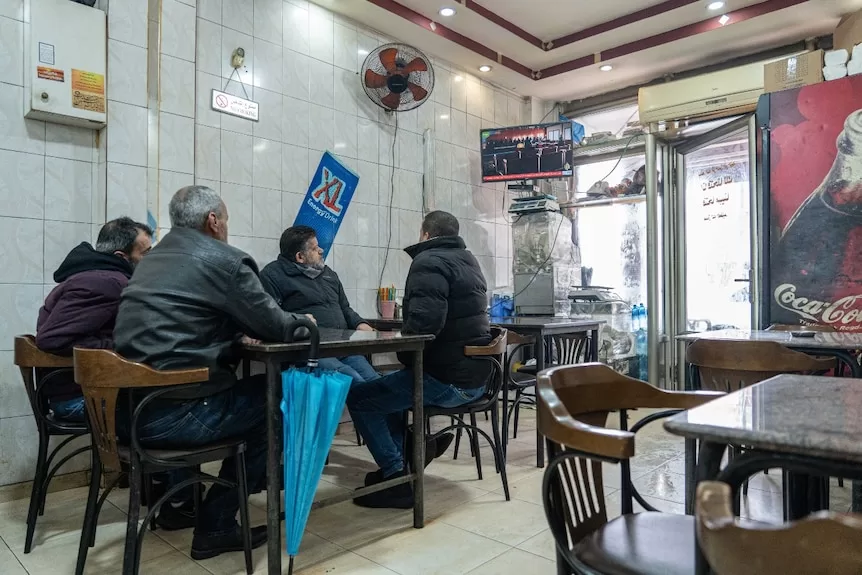- In short: The court agreed with several aspects of South Africa’s case, but did not grant its key request: an immediate ceasefire.
- What’s next: ICJ rulings are considered binding, but it has no power to enforce them. Israel’s PM says the country will continue to “defend itself”.
The United Nation’s top court has stopped short of ordering Israel to cease its attacks on Gaza, as it considers allegations of genocide made by South Africa last month.
At a hearing in The Hague on Friday, the International Court of Justice (ICJ) issued provisional measures in the case brought by South Africa last month.
ICJ President Joan Donoghue delivered the interim judgement, saying the humanitarian situation in Gaza is “catastrophic”.
She imposed several conditions on Israel, and said it must take all measures to prevent genocide against Palestinians in Gaza, but did not order it to stop its military operation altogether.
The court did not rule on South Africa’s accusations Israel has been committing, inciting, and failing to punish those who commit genocide against Palestinians in its months-long bombardment of the Gaza Strip.
Deliberations on that could take years, so South Africa had urged the court to make interim orders to stop Israel’s military activity.
In Friday’s ruling, the court said Israel must take all measures within its power to prevent its troops from committing genocide and take steps to improve the humanitarian situation in Gaza.
Palestinian Foreign Minister Riyad al-Maliki welcomed the judgement, saying the court had “ruled in favour of international law”, while South Africa’s government described it as “a decisive victory”.
While the court’s judgement is clear, what happens next could be more complicated.
ICJ rulings are considered binding — and there are no appeal provisions — but it doesn’t have the power to enforce its own decisions.
If Israel chooses to ignore the judgement, South Africa can ask the UN Security Council to impose sanctions and authorise the use of force to restore international peace.
The security council comprises 15 nations. Five are permanent members (the United States, Russia, China, United Kingdom and France), and the other 10 are elected on a temporary basis.
But even the security council’s powers are limited. A permanent member can veto any decision, something the US would likely do in the event of a resolution relating to its close ally Israel.
The proceedings had several Australian connections, including lawyers Tal Becker, and Christopher Staker, who were representing Israel. Australian Hilary Charlesworth was among the 17 ICJ judges who heard the case.
In a video message after the interim judgement, Israel’s Prime Minister Benjamin Netanyahu described the allegations of genocide as “outrageous” and said the country would continue to “defend itself”.
Outside court, South Africa’s Minister for International Relations Naledi Pandor claimed the ruling implied a ceasefire was necessary, even if it didn’t say it specifically.
She told reporters: “How do you provide aid and water without a ceasefire?”
Court doesn’t consider all cases
Hundreds of pro-Palestinian and dozens of pro-Israel supporters gathered outside the court to watch the highly-anticipated decision be handed down.
The two groups were separated by a few hundred metres, with a heavy police presence on duty outside the Peace Palace complex.
Throughout the delivery of the ruling, the crowd of Palestinian supporters erupted in cheers, smiled and embraced each other.
At the conclusion of the court’s order, the cohort chanted “free, free Palestine,” and let off green, white and red flares.
Israel’s supporters remained solemn, with some yelling “shame” as the decision was read out.
While the ICJ did not order a ceasefire, it said it would not throw out the genocide case, and that some of South Africa’s assertions were plausible.
South Africa filed its application with the ICJ on December 29, and sought an expedited hearing, arguing the situation required “extraordinary urgency”.
Both countries put forward their cases during two days of hearings in The Hague earlier this month.
The court doesn’t have to hear every application, so the fact it decided to consider the case was a win for South Africa.
What constitutes a genocide for the purpose of international law is defined in the UN Convention on the Prevention and Punishment of the Crime of Genocide, to which South Africa and Israel are both signatories.
In its case, South Africa claimed Israel had violated its obligations under that convention in several ways, including that it had:
- Killed thousands of Palestinian civilians in Gaza
- Used large bombs in densely populated areas there
- Restricted aid destined for the territory
- Displaced around 1.9 million people there
It also argued Israel’s genocidal intent was conveyed by senior officials in public statements, including Mr Netanyahu.
Israel, meanwhile, argued it had the right to defend itself against Hamas’s own genocidal intent.
It claimed the level of destruction in Gaza was because the group — which Australia has designated a terrorist organisation — embeds itself among the civilian population, including hospitals.
Israel argued its decision to warn civilians of looming strikes, establishment of four field hospitals and provision of water to Gaza through two pipelines, amongst other evidence, showed it had the opposite of genocidal intent.
It said there were several statements, including by Mr Netanyahu, that had demonstrated the opposite of genocidal intent and that claims by some military officers and junior ministers were irrelevant.
The war erupted after Hamas’s October 7 attack on Israel, in which authorities there estimate 1,200 people were killed and hundreds of others taken hostage.
The Hamas-run Gazan health ministry says more than 26,000 people in Gaza have been killed in Israel’s attacks since then.
Court documents showed South Africa condemned the “direct targeting of Israeli civilians and other nationals and hostage-taking by Hamas and other Palestinian armed groups”.
However, it also argued no armed attack, even one involving “atrocity crimes”, could justify Israel’s subsequent actions.
